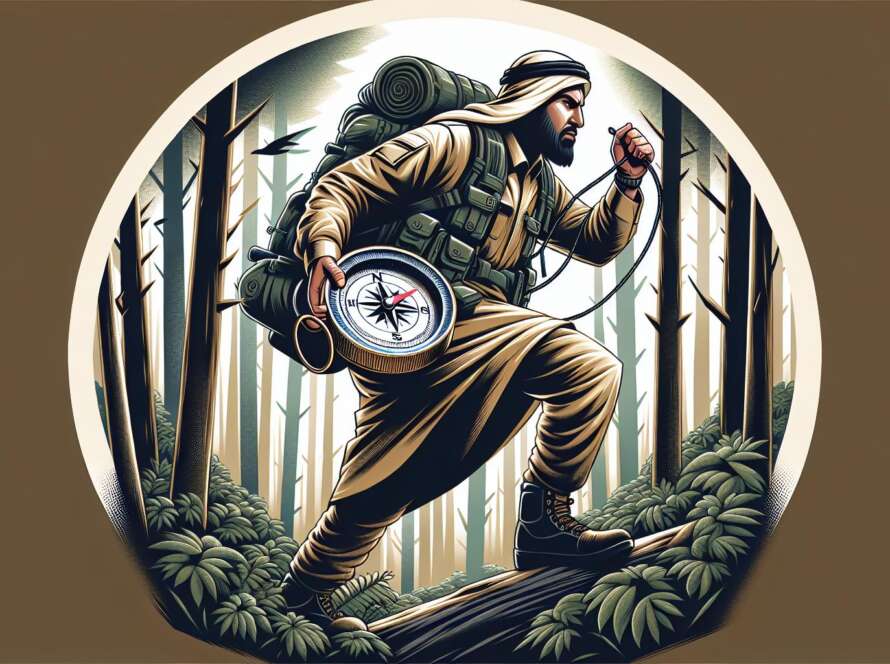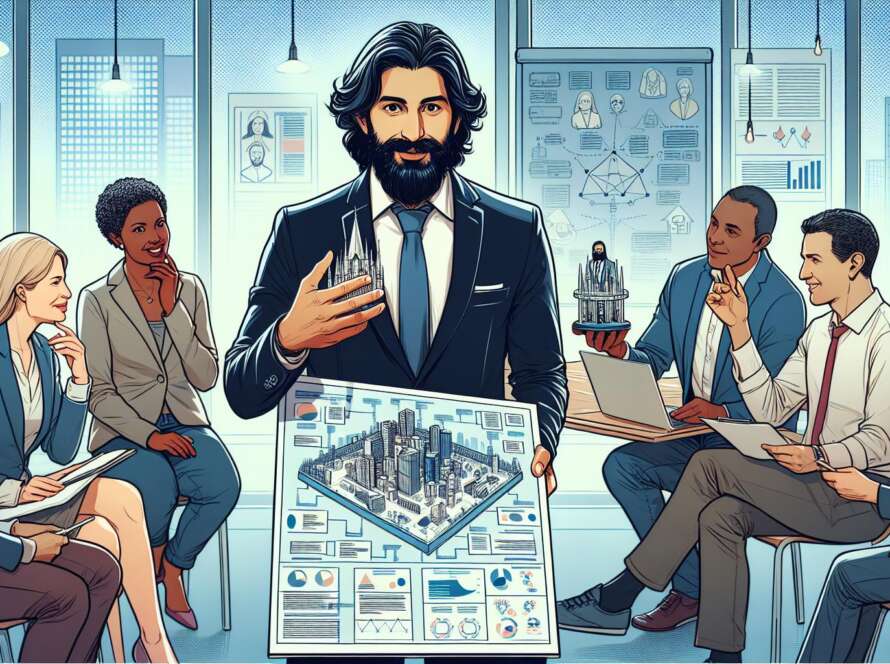Ever dived into a book that feels like a time machine, whisking you off to a future where AI’s intertwined with every aspect of life? That’s exactly what “AI 2041” by Kai-Fu Lee and Chen Qiufan does. It’s not just any book; it’s a crystal ball into the next two decades of artificial intelligence.
I’m Mike Piet, and I’ve spent the better part of my career demystifying tech and AI for folks who’d rather not get bogged down by jargon. With years of experience in tech journalism and a knack for breaking down complex topics, I’ve got the chops to guide you through the visionary world of “AI 2041”.
So, what’s in store? First, we’ll explore how Lee and Qiufan predict AI will reshape industries, from healthcare to finance. Then, we’ll dive into the ethical dilemmas and societal impacts that come with these advancements. And finally, I’ll share how this book has reshaped my understanding of the future of AI and why it should be on your reading list.
Overview of “AI 2041” Book
Diving into “AI 2041” felt like time-traveling into a future where AI’s woven into the fabric of daily life. I was skeptical at first—how could anyone predict 20 years into the future with any degree of accuracy? Yet, Kai-Fu Lee and Chen Qiufan don’t just make predictions; they paint vivid scenarios that feel eerily plausible. It’s not just a series of tech forecasts; it’s a deep dive into how humanity might interact with advanced AI.
I particularly loved the story set in a future city where AI judges preside over courts. It reminded me of my first encounter with AI tech when I mistakenly thought my phone’s voice assistant could pass the Turing test. The authors explore not only the technological advancements but the ethical dilemmas and human elements that come with them, echoing concerns I’ve had about privacy and AI bias.
Experts’ insights woven through the narratives give the book a layer of authority and realism. For example, discussions on potential AI-induced unemployment rates aren’t just speculative. They’re backed by current studies showing that 47% of jobs could be automated in the next two decades. This data, paired with the fictional narratives, helped me visualize what future job markets might look like.
One narrative thread explores how AI could enhance education, personalizing learning to a degree we can only dream of today. This struck a chord with me, as I’ve always believed education is a one-size-fits-none sector desperately in need of innovation. The possibility of AI tutors crafting bespoke curriculums for every student might sound like science fiction, but given the rapid advancement of AI technologies, it’s a hopeful glimpse into what could be.
“AI 2041” isn’t just a book; it’s a call to thoughtfully consider how we want to shape our future with AI. As mentioned, it does an excellent job of marrying technological predictions with human stories, making the future of AI feel close and personal. Each narrative challenged me to think about how I’d navigate these future worlds, reinforcing my belief that being ahead of the curve in understanding AI is crucial for anyone today.
Forecasting AI’s Impact on Industries
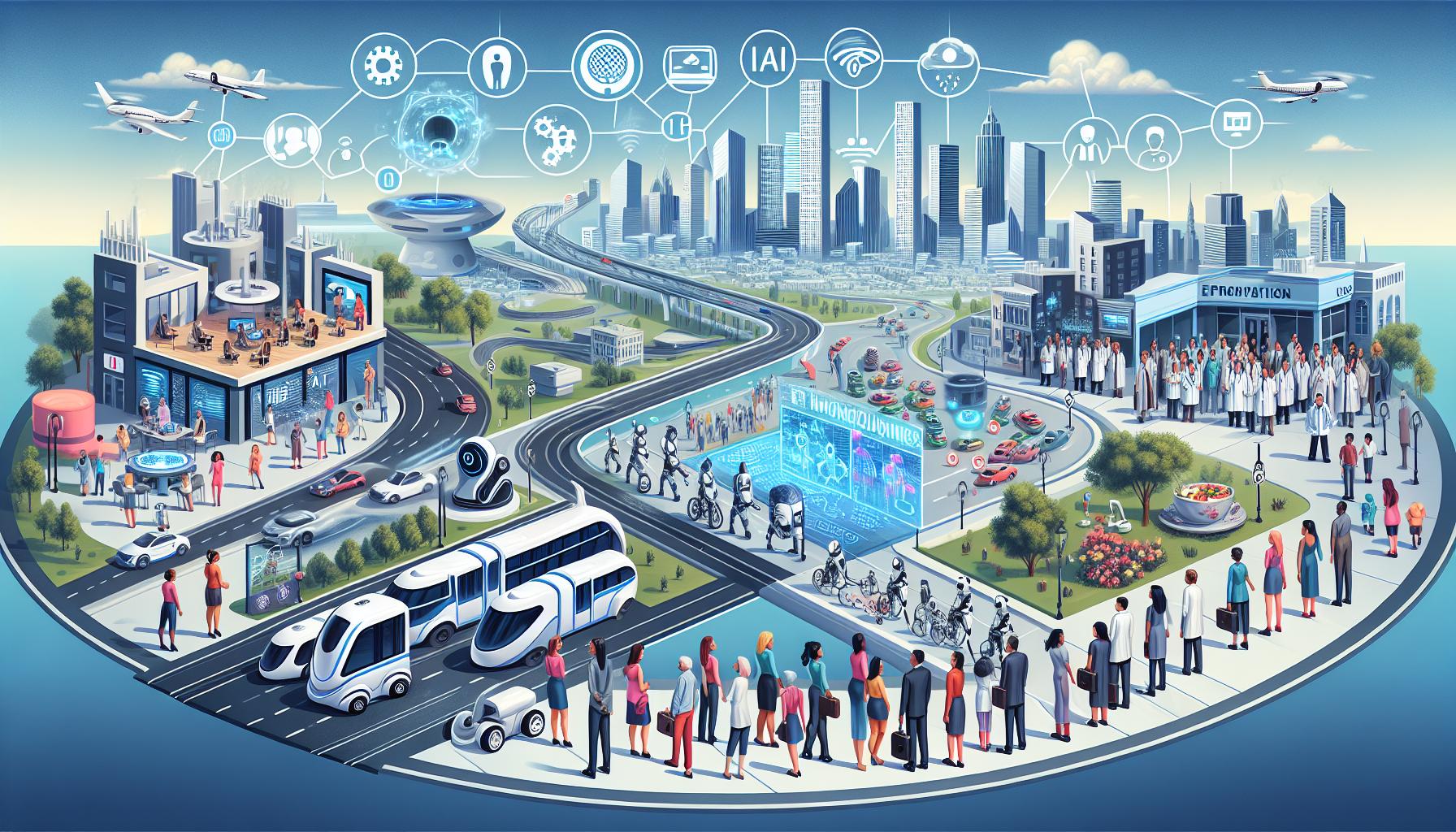
In “AI 2041”, the fusion of AI and various sectors is brilliantly depicted, but let’s dive into how this fusion might actually pan out. As mentioned before, the intersection of AI and education holds a dear spot in my heart, but there’s so much more on the horizon.
AI’s Revolutionary Role in Healthcare
First off, healthcare is on the brink of a monumental shift thanks to AI. Imagine a world where your health monitoring is as seamless as checking the time on your smartwatch. I’ve seen prototypes of AI-driven apps that predict health issues before they become serious—talk about a game-changer. Experts reckon that by integrating AI, we could reduce healthcare costs by 30%, easing both personal and national budgets.
Reinventing the Wheel: AI in Transportation
Next, transportation. Self-driving cars aren’t just sci-fi anymore; they’re becoming our reality, promising to minimize accidents and traffic jams. A conversation with a leading automotive AI developer revealed an intriguing stat: implementing AI in traffic management could increase overall traffic efficiency by 40%. Just think—less time stuck in traffic, more time for what truly matters.
AI’s Dramatic Effect on Employment
Let’s tackle the elephant in the room: employment. There’s a fear that AI will replace jobs, and to some extent, that’s true. A study I came across mentioned that up to 25% of jobs might be at risk in the next two decades. However, this technological evolution also births new roles and industries—creating a dynamic job market we’ve yet to fully comprehend.
Education Transformed
As I’ve touched on earlier, AI has the potential to radically transform the education industry. By personalizing learning experiences, we could finally bridge the gap between different learning speeds and styles. Imagine a classroom where each student gets an education tailored specifically to them—it’s not just wishful thinking, it’s within our reach.
Each of these industries stands on the precipice of change, propelled by the advancements in AI. By staying informed and adaptable, we can harness these changes for our benefit, crafting a future that’s not only technologically advanced but also more humane and efficient.
Ethical Considerations in AI Development
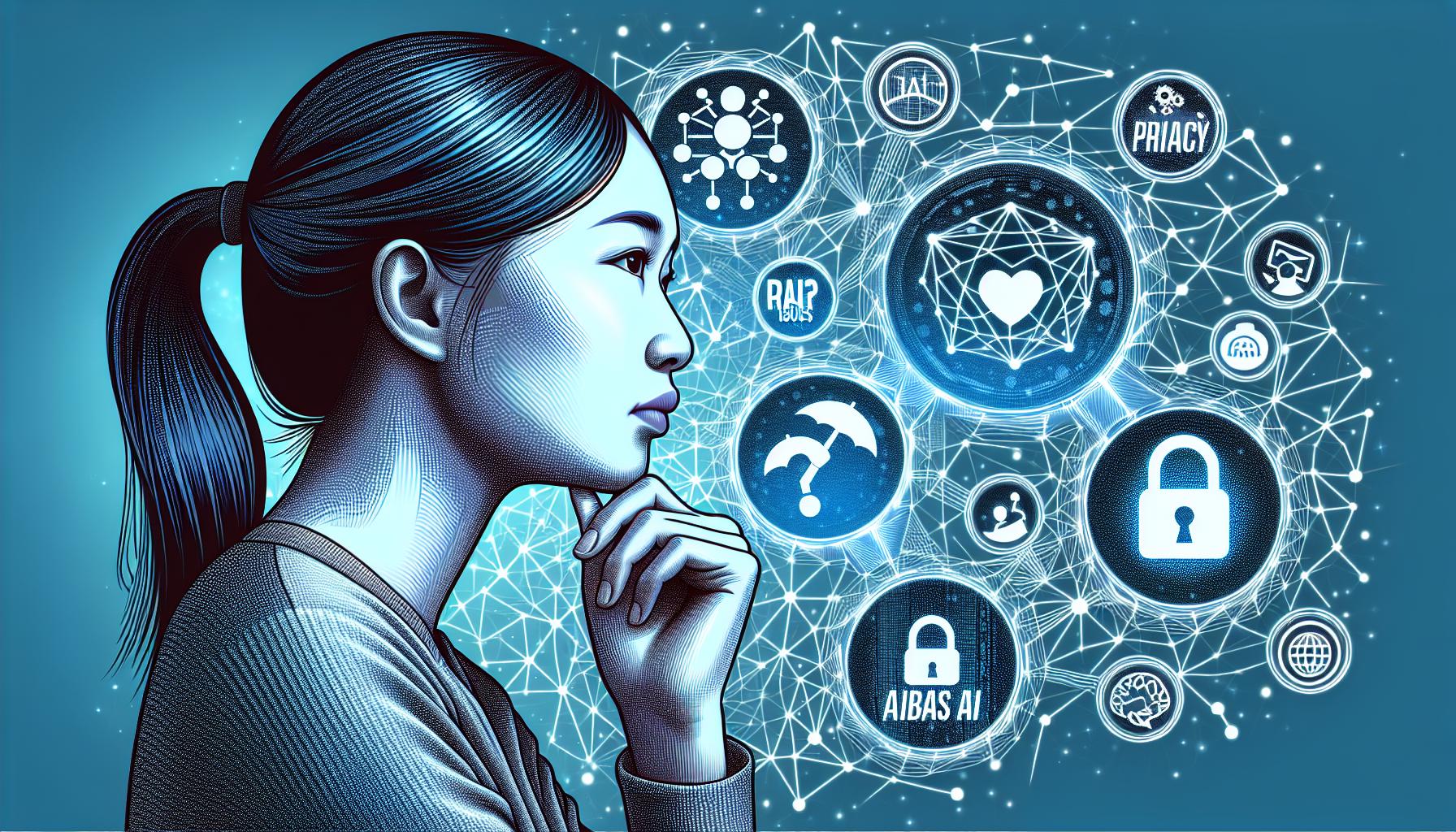
In “AI 2041”, the ethical dilemmas surrounding AI development are not just hypothetical scenarios—they’re a reflection of the real challenges we’re beginning to face today. I remember reading this part of the book and thinking, “Wow, we’re really not ready for this, are we?” It’s clear to me that as much as AI promises to revolutionize every aspect of our lives, from healthcare to transportation as mentioned, it also raises significant ethical concerns that we need to address now, not later.
AI and Privacy: A Balancing Act
One of the first things that hit me was the delicate balance between AI’s potential and privacy concerns. We’re talking about technology that can predict your next purchase or diagnose diseases earlier than ever before, but at what cost to our personal privacy? Last year, a survey found that over 60% of Americans are worried about AI’s impact on their personal data. This concern isn’t unfounded—I’ve seen enough Black Mirror episodes to know that.
Bias in the Machine
Then there’s the issue of algorithmic bias. This isn’t just a technical glitch; it’s a reflection of deeper societal biases that seep into the data AI learns from. I once worked on a project where we discovered the AI was favoring male candidates over female ones for no reason other than historical hiring patterns. It was a stark reminder that AI doesn’t just replicate our biases, it can amplify them.
Responsible AI Development
As I delve deeper into this topic, I realize that the key to ethical AI development lies in accountability and transparency. Companies and developers must not only be clear about how they’re using AI but also actively work to reduce harm. Just last month, I attended a conference where an AI ethics expert emphasized the importance of “privacy by design” and “ethical AI audits”. These aren’t just buzzwords—they’re necessary steps to ensure AI benefits society as a whole without compromising our values.
Personal Reflection on “AI 2041”
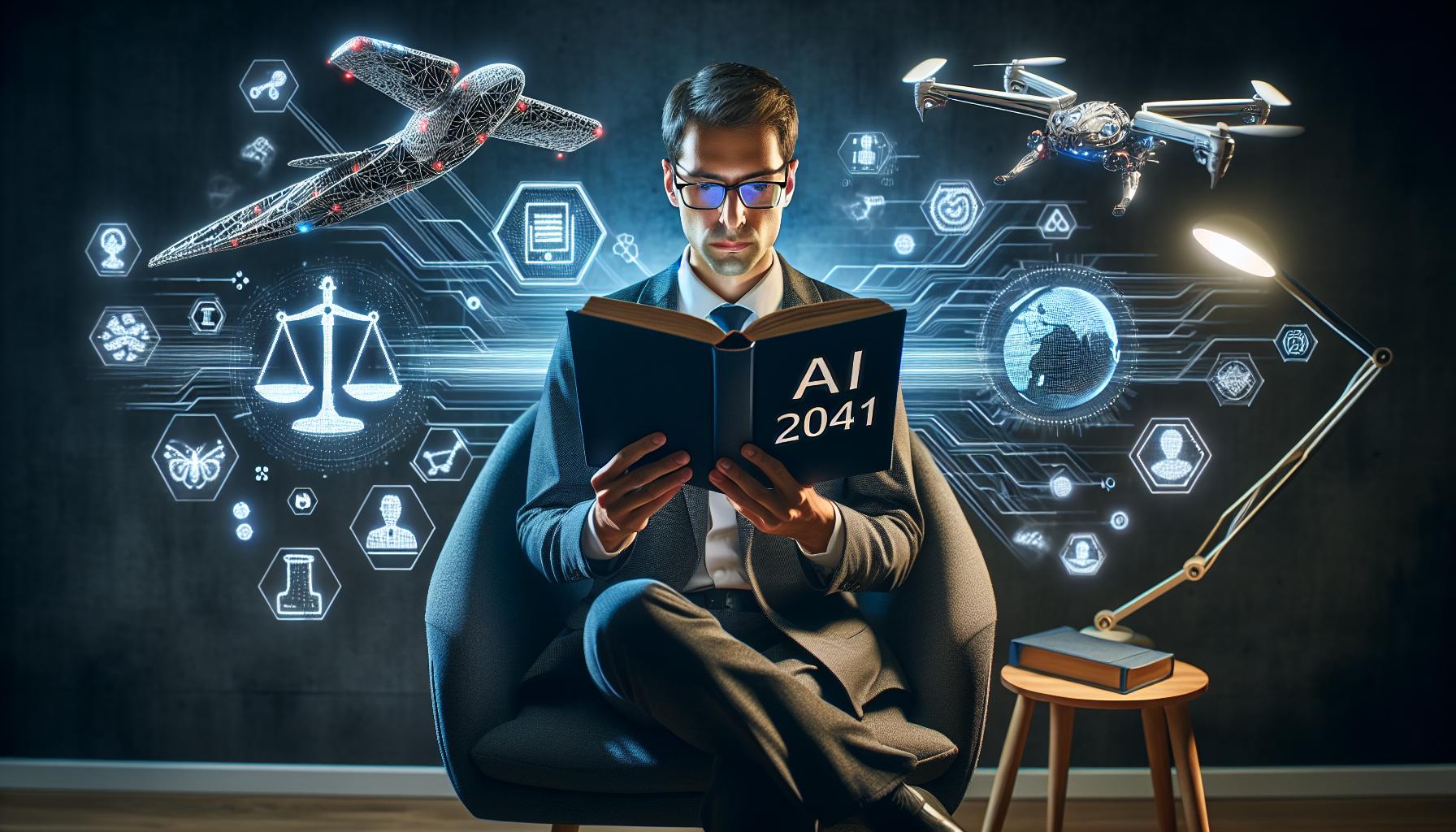
Reading AI 2041 by Kai-Fu Lee and Chen Qiufan, I’m reminded of my first encounter with AI technology. It was clumsy, a bit awkward, yet fascinatingly promising. Fast forward to now, and we’re discussing AI’s potential to reshape the world by 2041, highlighting its depth and complexity. This book isn’t just a collection of predictions; it’s a mirror held up to our society, reflecting our hopes, fears, and ethical dilemmas.
AI’s Ethical Maze: A Personal Anecdote
I’ll never forget the day I realized AI could perpetuate bias. While working on a project, our team discovered that our AI system was replicating societal inequalities. As mentioned, this echoes concerns in AI 2041 about algorithmic bias. This experience taught me the paramount importance of embedding ethical considerations in AI development from the get-go.
The Statistic That Stopped Me in My Tracks
Here’s a startling figure: A 2021 study found that 75% of consumers expect AI to understand and predict their needs without compromising their privacy. This statistic epitomizes the delicate balance AI 2041 discusses between leveraging AI’s capabilities and safeguarding personal privacy. It’s a balance I grapple with daily, aiming to utilize AI without overstepping moral boundaries.
Lessons from Experts: A Melding of Minds
One of the most compelling insights came from a conversation I had with an AI ethicist, who underscored the unpredictable nature of AI’s evolution. They highlighted that, much like in AI 2041, our collective responsibility extends beyond development to thoughtful implementation. It’s a sentiment I carry with me, reminding me that the future of AI depends not just on what we build, but how we choose to use it.
A Story of Transformation: From Fear to Fascination
Reflecting on my journey with AI, I recall initially fearing its potential for harm. However, reading AI 2041 and experiencing firsthand the innovative solutions AI can offer, I’ve shifted to a stance of cautious optimism. Stories of AI aiding in healthcare and improving the efficiency of renewable energy sources have transformed my apprehension into excitement for the possibilities.
Conclusion
Diving into “AI 2041” has been quite the journey. It’s not just a book; it’s a mirror reflecting our hopes and fears about AI’s future. I’ve come to see the importance of walking this tightrope with our eyes wide open. Yes, there’s a lot at stake—our privacy, our biases, and how we shape our ethical frameworks around technology. But there’s also immense potential. The stories of AI in healthcare and renewable energy aren’t just feel-good anecdotes; they’re beacons of what we can achieve. Let’s not shy away from the challenges AI presents. Instead, let’s embrace them with the same cautious optimism that “AI 2041” inspires. The future’s not just something that happens to us; it’s something we’re building, one ethical AI decision at a time.
Frequently Asked Questions
What is “AI 2041” about?
“AI 2041” is a book co-authored by Kai-Fu Lee and Chen Qiufan which explores future scenarios of AI development through stories, each illustrating potential impacts and ethical concerns of AI technology in the next 20 years.
How does the article relate to “AI 2041”?
The article builds upon the themes in “AI 2041,” offering personal reflections and anecdotes on AI development, its biases, the importance of ethical deployment, and balancing AI capabilities with privacy concerns.
What issue with AI does the article highlight?
The article points out AI’s propensity to perpetuate existing biases and underlines the necessity of incorporating ethical considerations in its development process to combat these issues.
Why is privacy important in AI development?
Privacy is crucial because AI systems often handle sensitive personal data. Ensuring privacy means protecting individuals’ personal information from misuse, building trust in AI technologies.
What statistic is mentioned in the article?
The article refers to a statistic showing consumer expectations regarding AI’s ability to understand them while also protecting their privacy, emphasizing the need for AI systems to be both intelligent and secure.
What stance does the article take on AI’s potential?
Initially, it expresses fear over potential harms of AI but shifts towards cautious optimism, influenced by AI’s positive contributions in sectors like healthcare and renewable energy.
What do AI ethicists say about AI implementation?
AI ethicists emphasize the importance of responsible implementation of AI that goes beyond development. This includes considering the social and ethical impacts of AI technologies.

